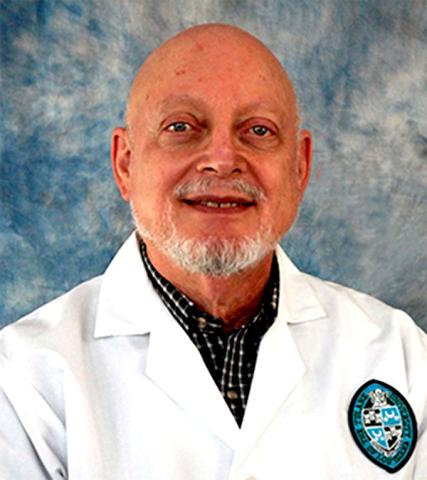Norman R. Kreisman, PhD
Professor

Education & Affiliations
Areas of Expertise
Biography
Dr. Kreisman was born in Chicago, IL in 1943. He earned a B.A. degree in Psychology at Arizona State University in 1965, a M.S. degree in Physiology at the University of Michigan in 1968, and a Ph.D in Physiology at the Medical College of Pennsylvania in 1971. He joined the Department of Physiology at Tulane as an Instructor in July, 1971. That year, he co-founded the School of Medicine’s Medical Neuroscience Course and directed the course from 1980 through 1984. Medical Neuroscience was recognized by the Owl Club as the best First-Year Course in 1981-1984. In 1986, he co-founded Tulane’s Interdisciplinary Graduate Program in Neuroscience and served as the Program’s first Director that year. In 1987, he served as the Interim Chair of the Department of Physiology. In 1997, he became Director of the Human Physiology Course for first-year medical students. During his 21-year tenure as course director, the Human Physiology Course was recognized by the medical students 13 times as Best First-Year Course and six times as Best Course in the School of Medicine. In 2017, after 46 years in service to Tulane, Dr. Kreisman transitioned to part-time status, with active participation continuing primarily in teaching medical and graduate students. He no longer conducts research or trains students in research.
Research
Dr. Kreisman’s early research was in the investigation of epilepsy, particularly cerebral blood flow and oxygen delivery in status epilepticus. His findings showed that deficiency of cerebral blood flow and oxygen delivery to the cortex was primarily due to compromises in systemic cardio-pulmonary function. His more recent research interest was in understanding endogenous mechanisms protecting against brain injury in response to hyoxia-ischemia. There are two lines of evidence for the existence of these mechanisms: 1) conditioning the brain with one or more mild episodes of hypoxia/ischemia protects the brain from subsequent hypoxic/ischemic insults. Protection lasts for hours to days. This is known as ischemic preconditioning or ischemic tolerance. The explanation for this acquired tolerance to hypoxia/ischemia is that conditioning stimuli activate endogenous protective mechanisms that remain in effect for an extended period. 2) Various regions of the brain display selective vulnerability/resistance to hypoxic/ischemic injury. A spectrum of vulnerabilities even exists within structures known to be very susceptible to injury, such as the hippocampus. Using hippocampal slices, we are testing the hypothesis that selective resistance to ischemic insults is related to the propensity of a particular region to undergo ischemic preconditioning. Optical and electrophysiological techniques are used to monitor cell swelling and depolarization, which are early signs of ischemic injury. Currently, we are investigating the role of the paracrine cytokine, erythropoietin as a mediator of preconditioning by exploring its downstream signaling pathways. Our hope is that these investigations will point toward future therapeutic regimens to ameliorate the devastating effects of strokes.
